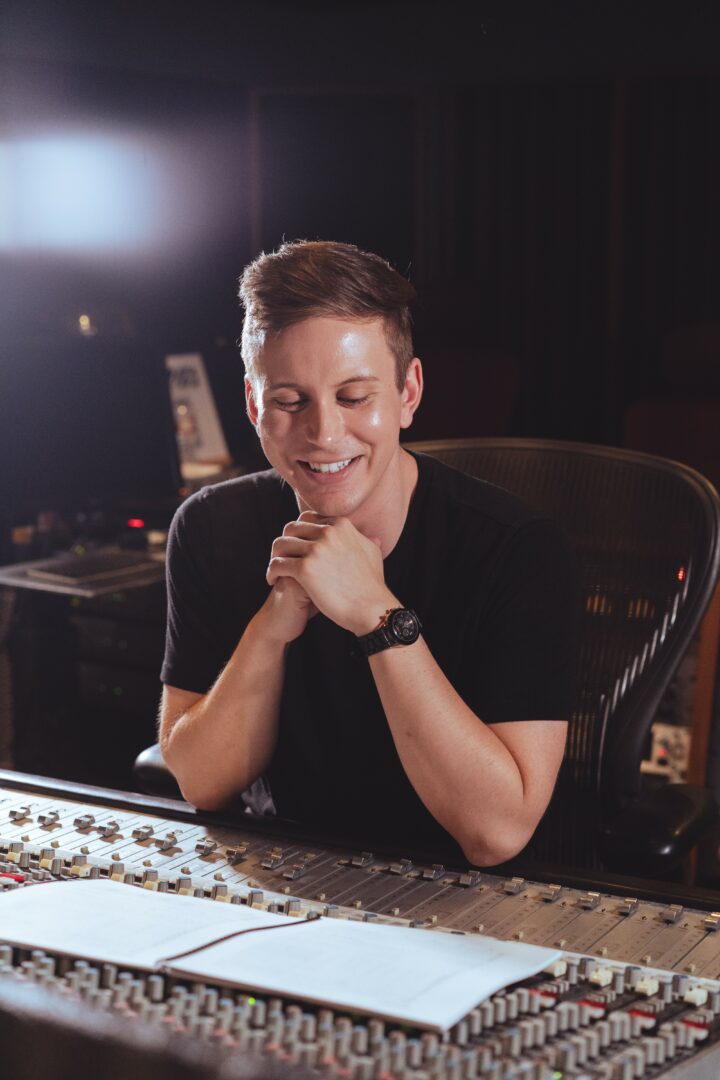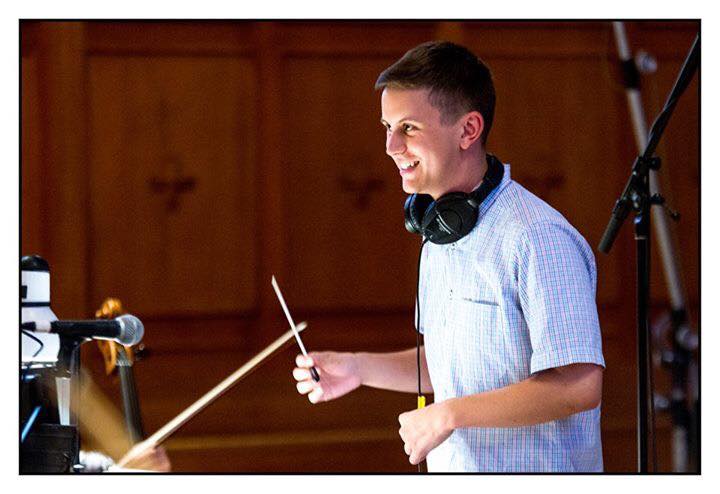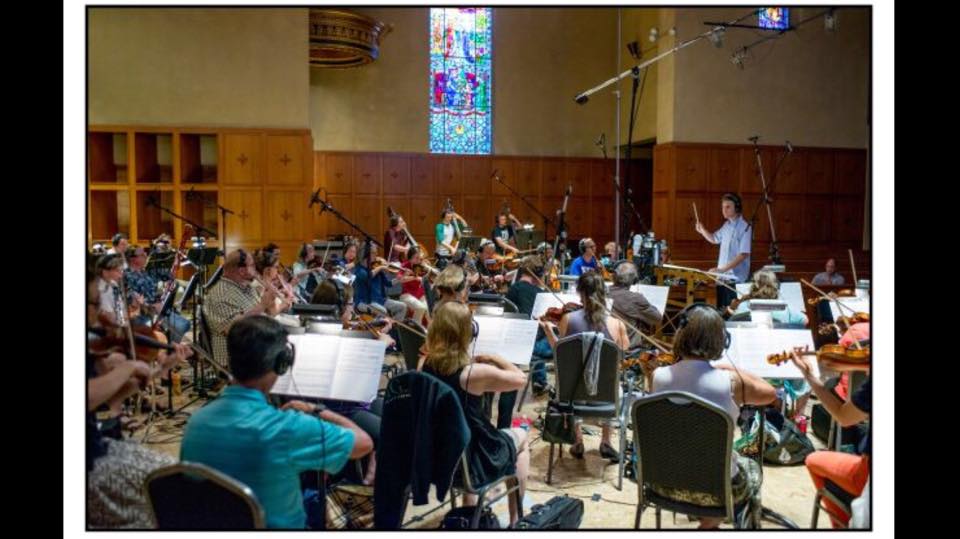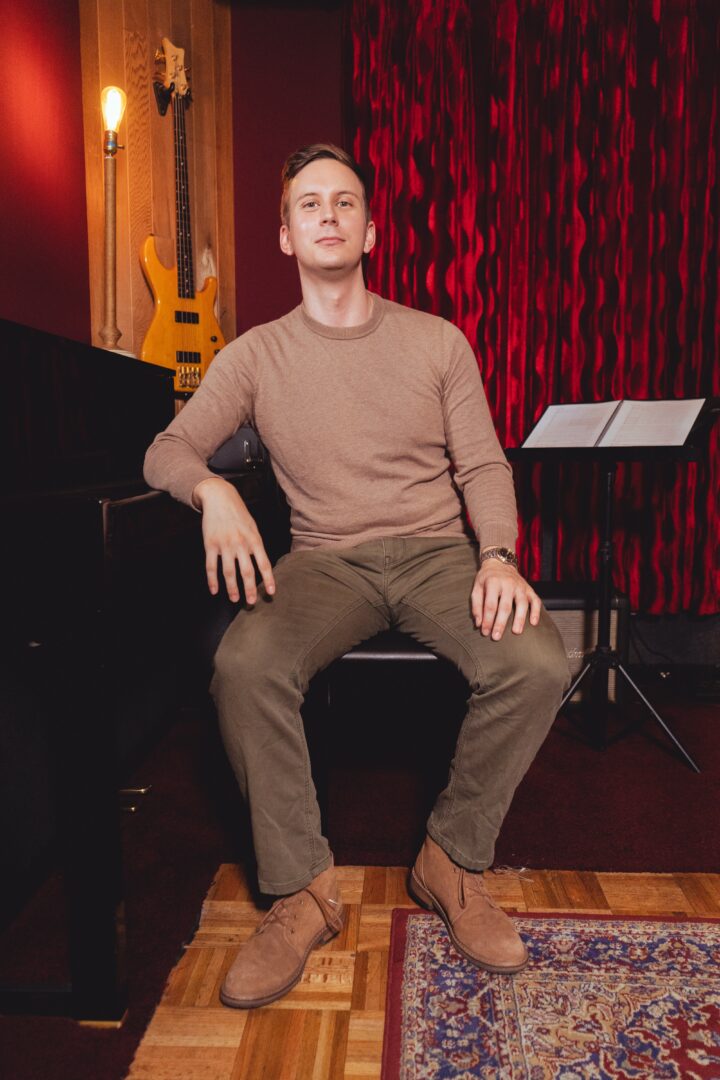We were lucky to catch up with Kyle J Hartman recently and have shared our conversation below.
Hi Kyle J, thank you so much for opening up with us about some important, but sometimes personal topics. One that really matters to us is overcoming Imposter Syndrome because we’ve seen how so many people are held back in life because of this and so we’d really appreciate hearing about how you overcame Imposter Syndrome.
I’ve talked about this a lot because it’s something that we all face and knowing this is actually one of the first steps to overcoming imposter syndrome. You have to recognize that even the really great composers and artists like Hans Zimmer and John Williams and plenty of folks in the upper echelons of this industry face a similar fear of the blank page. Hans says “I have no idea how to do your movie, it’s always a blank piece of paper.” Maestro Williams expresses similar sentiments when he reminds young composers that this is not magic. It takes work.
So that’s step number one: just realize that you’re in great company!
Another thing you can do is to build up your mental resilience against things like rejection or fear of failure. A practical way that you can begin is to keep a physical record of your accomplishments, whether that’s trophies, certificates, awards, contracts that you’ve signed, paychecks you’ve been given, basically anything where you can recognize your own achievements. That’s done wonders for me, and I hope that strategy can help other artists express gratitude for the opportunities they’ve already been given and remind them of the great work that they’ve already done.

Thanks for sharing that. So, before we get any further into our conversation, can you tell our readers a bit about yourself and what you’re working on?
As a child, I was surrounded by music through church choir performances and playing piano at various churches around Fort Worth, Dallas, and across North Texas. I went on to study music at SMU in Dallas and earned a master’s degree in film scoring under Dr. Hummie Mann at the Seattle Film Institute.
Since then, I’ve worked on a wide range of exciting projects in Hollywood, taking on nearly every role in the film music industry. I started as a copyist, preparing sheet music for orchestral scoring sessions, and later landed internships that led to orchestrating my first feature film, Freaks, with composer Tim Wynn. I’m incredibly grateful to Tim because that opportunity opened the door to more work in orchestration and additional music writing. I’ve also had the privilege of collaborating with Tim Williams, orchestrating his score for The Swearing Jar. That one is a really touching romantic tale which we recorded in London. The score was quite intimate and featured a unique ensemble of strings and piano.
In 2020, I worked at Bleeding Fingers Music, Hans Zimmer’s television production studio, contributing to their Extreme Music library. While I’ve since moved on from that company, I still regularly create tracks for their catalog, which are featured in documentaries, reality TV, and commercials.
In 2022, I received an invitation to work with composer John Paesano on Marvel’s Spider-Man 2. Writing music for the game was both fun and challenging because a lot of it wasn’t done to picture like in traditional film scoring, but rather to fit gameplay moods—like stealth or combat—at varying energy levels. So one musical idea had to work in a ton of different contexts depending on what a player decided to do at any given moment. Hearing that stuff recorded live was a real treat, and I’m unbelievably grateful to John and his crew for bringing me onboard.
Lately, I’ve focused on my own projects. I released CELESTIAL, a five-track EP featuring remote recordings of musicians from across the country during the pandemic lockdowns. I also co-produced DREAMS AWAKE, a Celtic folk album with my dear friend Shannon Doe Ewing. She is a classically trained soprano with the most angelic tone you’ve ever heard, so her voice really brought that music to life. Working on that music eventually culminated in a live album-release concert at St. John’s Cathedral in downtown Los Angeles. Both albums are available to license. CELESTIAL can be found on Artlist and DREAMS AWAKE in the BMG catalog.
Looking ahead, I have several exciting projects lined up for the new year. While I can’t share any details just yet, the music is shaping up to be very playful and adventurous, and I’m thrilled to collaborate with some fantastic artists from all around the world.

There is so much advice out there about all the different skills and qualities folks need to develop in order to succeed in today’s highly competitive environment and often it can feel overwhelming. So, if we had to break it down to just the three that matter most, which three skills or qualities would you focus on?
The first skill to master is becoming an exceptional musician and honing your craft on your instrument. Learn the technology, especially how to create realistic MIDI mockups. In this industry, being able to deliver high-quality, realistic-sounding tracks on tight timelines makes you an invaluable resource for composers and producers. If you play any live instruments, your recordings can elevate a project’s overall quality quite significantly.
Second, develop mental resilience. It really helps when you already know you’re a great musician which is why that’s step one. You’re gonna hear “no” far more often than “yes,” and you really can’t take it personally. It’s a hard lesson to learn, but essential. Learn to pivot when opportunities don’t work out, and always ask, “What’s next?” Your career will literally depend on connecting with people, so this resilience will keep you moving forward instead of getting stuck in fear, failure, or imposter syndrome. This mindset helps you build and maintain those important relationships and stay open to new possibilities.
If you want to compose for film specifically, my third recommendation is to learn how movies are made, start to finish. Understand every stage of production, from pitch decks and storyboards to filming, post-production, and editing. Many composers focus solely on music, but knowing the filmmaking process helps you communicate better with directors—aka, the people who hire you. Directors are the captains of the ship, and understanding their world and jargon makes you much more effective at bringing their vision to life.
So that third skill is really to think of yourself as a filmmaker first and a musician second. Directors and producers will see you as a collaborator who contributes to their story, not just someone asking for work. Position yourself as a storyteller and businessperson who understands the creative vision and your role in realizing it. This approach makes you a more valuable resource and ideally helps you stand out in a competitive industry.

Who is your ideal client or what sort of characteristics would make someone an ideal client for you?
My ideal client is a passionate storyteller — someone with a clear vision but also a willingness to collaborate. It’s a delicate balance of direction and openness that makes projects really exciting to me! I love working with people who bring their unique skills and ideas to the table while also exploring new possibilities together. The best projects feel like solving a big creative puzzle together, where each piece adds depth and dimension to the final result. My favorite moments are typically the surprises, the moments where we step back and say, “Wow, that’s actually really cool! I didn’t see that coming, but it’s perfect for the scene.” That shared discovery is incredibly rewarding, especially when we hit a groove — bouncing ideas back and forth, testing concepts, and cutting what doesn’t work. That’s when the magic happens, you know? I call it the “goosebumps” test because when you both get goosebumps, you know you’ve hit the jackpot!
There’s a unique thrill in shaping a project’s tone through sound. Iteration is key; tweaking tiny details and experimenting with different instruments, textures, or notes. Sometimes, a single change can completely redefine a scene, creating those moments where everything just clicks. It can also help to remove elements, boil things down to their essence. It’s a constant reminder of why I love what I do — unearthing emotion, drawing out a character’s depth, and finding the perfect sound to complement the story.
Collaboration is at the heart of this process, and I really enjoy that exchange of ideas. Whether we’re crafting a sonic identity or discovering an unexpected creative angle with the story, the journey is always as fulfilling as the destination.
Contact Info:
- Website: https://kylejhartman.com/
- Instagram: https://www.instagram.com/kylejhartman
- Linkedin: https://www.linkedin.com/in/kylejhartman/
- Soundcloud: https://soundcloud.com/kylejhartman
- Other: EXTREME MUSIC: https://www.extrememusic.com/search?blank=0&order_by=&query=KYLE%20HARTMAN
ARTLIST: https://artlist.io/royalty-free-music/album/celestial/10949
BMG: https://bmgproductionmusic.com/en-us/album/shannon-doe-ewing-dreams-awake/00c220bbf08e72ff?searchTerm=KYLE%20HARTMAN&typed=kyle&typed=hartman

Image Credits
Alissa Wyle
Holy Smoke Photography
so if you or someone you know deserves recognition please let us know here.




